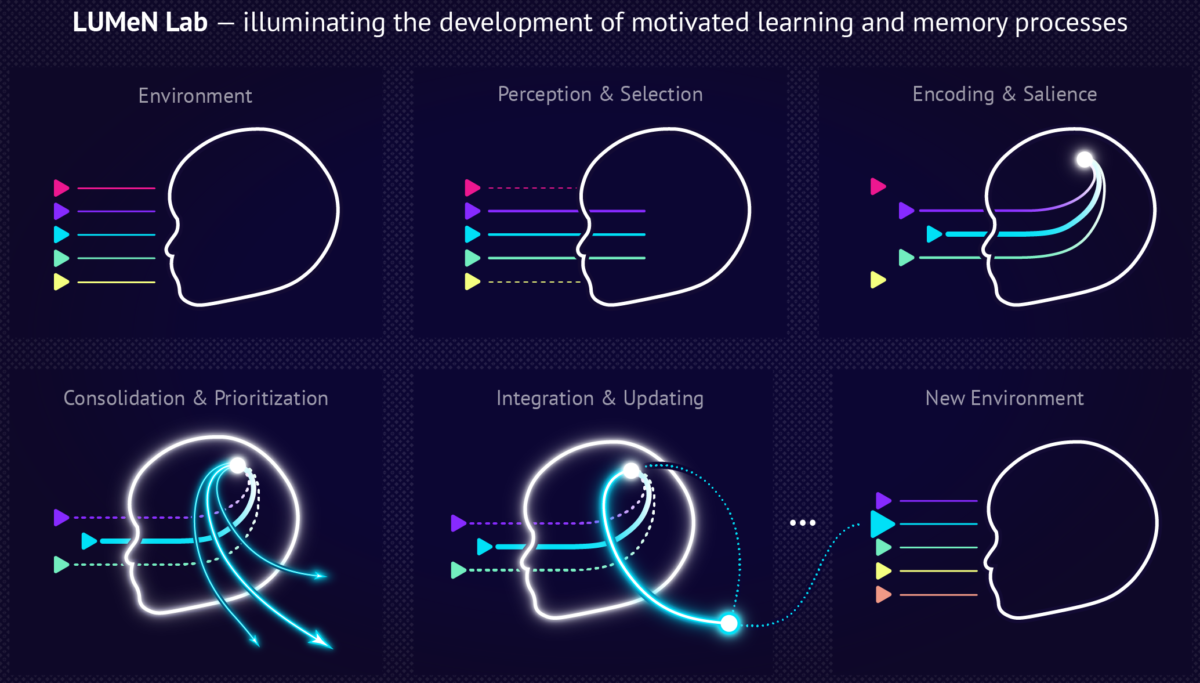What do we study?
The ability to learn from and remember salient information is essential for an individual to survive and thrive throughout life. Research in the LUMeN lab focuses on characterizing the brain and cognitive mechanisms through which emotion and motivation mold how we learn, what we remember, and how our memories guide thoughts and actions in new contexts and environments across development. Our lab’s core concept art below illustrates influences of motivation and emotion (which modulates motivation) on cognitive processes and how these dynamic processes can in turn influence how we perceive and interact with our environment.

We use an interdisciplinary and multimodal approach, including a combination of behavioral, neuroimaging, psychophysiological, computational modeling, and ecological momentary assessment techniques. Work in the lab currently aims to address the following overarching questions:
Converging evidence from cross-species research shows increased sensitivity to both positive and negative emotional information during adolescence. However, few studies have examined how emotion and motivation mold how we learn and what we remember across age. Experiences that persist in memory guide future thoughts and actions in new contexts and environments. Thus, our investigations of typical development of motivated learning and memory processes will help delineate brain and cognitive mechanisms that may be particularly susceptible to dysregulation, leading to poor outcomes or mental illness, or that may be strengthened to support healthy development.
Effective decision-making relies on our ability to learn about the relations between stimuli, actions, and outcomes in our environment. Although considerable work has examined developmental changes in learning from feedback, few studies have investigated how the complexity of the learning environment influences motivated learning, memory, and brain function across development. We are therefore investigating how motivated learning and memory processes are influenced by the structures of different environments from childhood to adulthood. Insights from this work may inform strategies that support youths’ flexible learning in various contexts.

